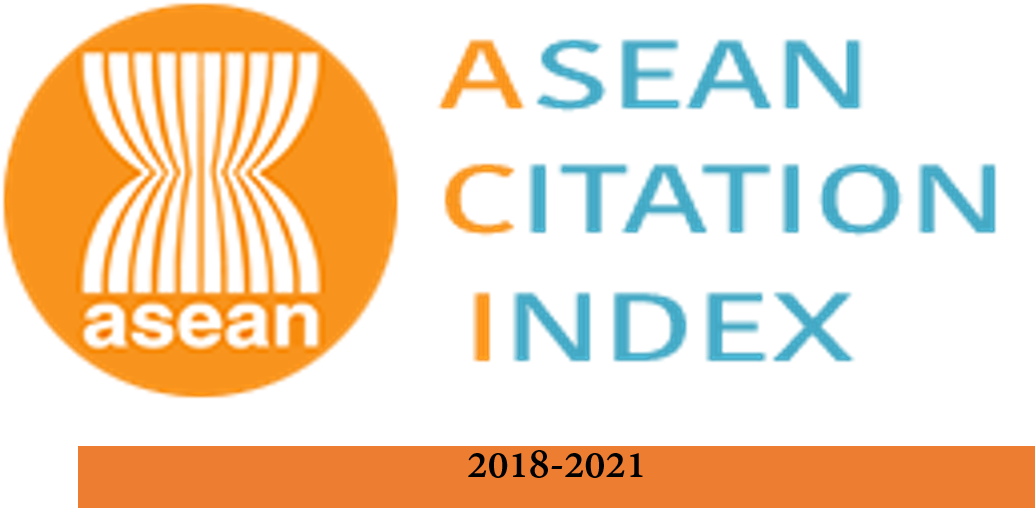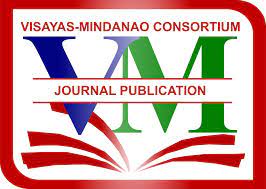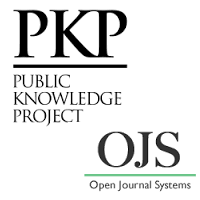A Research-Based Evaluation Instrument of Teaching Performance Focused on the Learning Outcomes
Abstract
All higher educational institutions in the Philippines have recently adopted the Outcomes-Based Education (OBE), and this has resulted in the need to revise how the faculty is to be evaluated. This study developed an evaluation instrument of the teaching performance of the faculty based on the learning outcomes. The study was conducted at Bukidnon State University with college students randomly selected from the different colleges. Factor analysis was used to generate the constructs. The researchers used Develop, Pilot Test, Evaluate, and Implement (DPTIE) model. The five factors with the constructs are Factor I-Motivation for Learning and Lesson Presentation, Factor II -Management of Learning; Factor III Innovativeness and Creativity, Factor IV-Mastery of the Subject Matter, and Factor V-Assessment of Learning. Items corresponding to these factors or constructs are found in the final instrument. The evaluation tool was found to be valid and reliable to measure the performance of faculty. It cannot be seen yet how this can be applied to OBE where outcomes of learning are emphasized because the new curricula have to be implemented. However, it is recommended that this evaluation tool is utilized by the students, chairpersons, and deans to evaluate the teaching performance of the faculty.
Keywords:
Research-based learning outcomes, outcomes-based education, factor analysis, evaluation tool, factor loadings
References
Agsalod, M. (2015). Development of faculty performance appraisal instrument for a Royal Police Academy in the Kingdom of Bahrain. Published dissertation, Philippine Normal University. The Normal Lights, Journal on Teacher Education.
Airasian, P., Cruikshank, K., Mayer, R., Pintrich, P., Raths, J., & Wittrock, M. (2001). In L. Anderson, and D. Krathwohl, (Ed.), A taxonomy for learning, teaching, and assessing: A revision of Bloom's taxonomy of Educational Objectives. New York: Longman.
Bloom, B., Englehart, M., Furst, E., Hill, W., & Krathwohl, D. (2001). Taxonomy of educational objectives: The classification of educational goals. Handbook I: Cognitive domain. New York, Toronto: Longmans, Green.
Brandt, R. (1998). An overview of outcomes-based education. Curriculum handbook. Association for Supervision and Curriculum Development. Alexandria, Virginia: ASCD.
Brophy, T.S. (2011). A guide for writing student learning outcomes. Continuous Quality Enhancement Series. University of Florida Office.
Centra, J. A. (1993). Reflective faculty evaluation. San Francisco: Josey-Bass.
Cess-Newsome, J. (1999). Secondary teachers’ knowledge and beliefs about subject matter and their impact on instruction. Examining pedagogical content knowledge. Springer Netherlands.
51-94.CHED CMO No. 46 s. 2012 Policy-Standard to Enhance Quality Assurance (QA) in Philippine Higher Education through Outcomes-Based and Typology-Based QA.
Davis, H. (2003). Outcome-based education educational strategies. JVME 30(3). AAVMC.
Dyer, K. (2013). Improving student performance requires varied teaching strategies and techniques. Northwest Evaluation Association.
Elmore, R. (2010). Leadership development: Principal Congress 2010 highlights Retrieved from http://www.edu.gov.on.ca/eng/policyfunding/leadership/highlights.htmForest, E. (2014). The ADDIE model: Instructional design. Frameworks and theories.
Gillmore, G. M., Kane, M. T., & Naccarato, R. W. (1978). The generalizability of student ratings of instruction: Estimates of teacher and course components. Journal of Educational Measurement, 15. 1-13.
Gagne, R. (1985). The conditions of learning (4th). New York: Holt, Rinehart & Winston.
Grossman, P.L., Wilson, S.M., & Shulman, L.S. (1989). Teachers of substance: Subject matter knowledge for teaching. Profesorado. Revista de Curriculum y Formacion del Profesorado, 9 (2), 1-25.
Haydn, T. (2007). Managing pupil behaviour. Key issues in teaching and learning. London: Routledge.
Harden, R. M. (2002). Developments in outcome-based education. Medical Teacher, 24 (2), 117-220.
Hargreaves, E. (2010). Assessment for learning? Thinking outside the (black) box. Cambridge. Journal of Education, 35 (2).
Ibay, M. V. (2014) Development and validation of computer-aided supplemental materials in Science and Health for Grade III Pupils. Published master’s thesis, Philippine Normal University. The Normal Lights, Journal on Teacher Education, 8, (1).
Kyriacou, C. (2007). Essential teaching skills. (3rd ed.). Nelson Thornes. Marsh, H. W. (1984) Validity of student evaluations of instructional effectiveness. A comparison of faculty self-evaluations and evaluations by their students. Journal of Educational Psychology.
Marsh, H. W. (1987) Students’ evaluations of university teaching: Research findings, methodological issues, and directions for future research. International Journal of Educational Research, 11 (3).
Marsh, H. W., & Roche, L. A. (1997). Making students’ evaluations of teaching effectiveness effective. American Psychologist, 52, 1187-1197.
McNeir, G. (1993). Outcome-based education: Tool for restructuring. Oregon School Study Council Bulletin (Eugene, Oregon School Study Council).
Monette, D.R., Sullivan, T.J., & Jong, C.R. (2002). Applied social research. Orlando, FLA: Harcourt Press.
Monforte, C. M. (n.d.). Towards the development of a performance evaluation system for a private basic education institution pupils. Published master’s thesis. Philippine Normal University. The Normal Lights, Journal on Teacher Education, 8, (1).
Murray, H. G. (2005). Student evaluation of teaching: Has it made a difference? Paper presented at the Annual Meeting of the Society for Teaching and Learning in Higher Education, Charlottetown, Prince Edward Island.
Navarro, R. L., & Santos, R. G. (2012) Assessment of learning outcomes. Lorimar Publishing, Inc.Nicholson, K. (2011). Outcome-based education. Council of Ontario Universities Degree Level Expectations Project, McMaster University. Ontario, Canada.
Renaud, R.D. (2002). The effect of higher-order questions on critical thinking skills. Unpublished doctoral dissertation. University of Western Ontario.
Robinson, K. (with Aronica, L.) (2009). The element. How finding your passion changes everything. New York: Viking Books.
Rodil, M.S.P. (2015). Development of an assessment portfolio on the use of UbD for science teaching. Published dissertation, Philippine Normal University. The Normal Lights, Journal on Teacher Education (9).
Sacay, L. M. (n.d.). Development and validation of UbD-based performance tasks as authentic assessment on selected topics in Biology. Published dissertation. Philippine Normal University. The Normal Lights, Journal on Teacher Education, 9.
Spady, W. G. (2014). Bringing heart and soul to education. 5th Paradigm Net.
Spady, W.G. (1994). Outcome-based education: Critical issues and answers. Arlington, VA: American Association of School Administrators. Retrieved December 17, 2010, from http://www.eric.ed.gov/RICWebPortal/contentdelivery/servlet/ERICSevlet?accno=ED380910
Spady, W.G. (1994). The challenge of outcomes-based education. Educational Leadership, 51 (6), 18-22.
West, M.A., & Farr, J.L. (1990). Innovation at work. In M.A. West and J.L. Farr (Eds), Innovation and creativity at work. Psychological and Organizational Strategies. 3–13. Chichester, England: Wiley
Airasian, P., Cruikshank, K., Mayer, R., Pintrich, P., Raths, J., & Wittrock, M. (2001). In L. Anderson, and D. Krathwohl, (Ed.), A taxonomy for learning, teaching, and assessing: A revision of Bloom's taxonomy of Educational Objectives. New York: Longman.
Bloom, B., Englehart, M., Furst, E., Hill, W., & Krathwohl, D. (2001). Taxonomy of educational objectives: The classification of educational goals. Handbook I: Cognitive domain. New York, Toronto: Longmans, Green.
Brandt, R. (1998). An overview of outcomes-based education. Curriculum handbook. Association for Supervision and Curriculum Development. Alexandria, Virginia: ASCD.
Brophy, T.S. (2011). A guide for writing student learning outcomes. Continuous Quality Enhancement Series. University of Florida Office.
Centra, J. A. (1993). Reflective faculty evaluation. San Francisco: Josey-Bass.
Cess-Newsome, J. (1999). Secondary teachers’ knowledge and beliefs about subject matter and their impact on instruction. Examining pedagogical content knowledge. Springer Netherlands.
51-94.CHED CMO No. 46 s. 2012 Policy-Standard to Enhance Quality Assurance (QA) in Philippine Higher Education through Outcomes-Based and Typology-Based QA.
Davis, H. (2003). Outcome-based education educational strategies. JVME 30(3). AAVMC.
Dyer, K. (2013). Improving student performance requires varied teaching strategies and techniques. Northwest Evaluation Association.
Elmore, R. (2010). Leadership development: Principal Congress 2010 highlights Retrieved from http://www.edu.gov.on.ca/eng/policyfunding/leadership/highlights.htmForest, E. (2014). The ADDIE model: Instructional design. Frameworks and theories.
Gillmore, G. M., Kane, M. T., & Naccarato, R. W. (1978). The generalizability of student ratings of instruction: Estimates of teacher and course components. Journal of Educational Measurement, 15. 1-13.
Gagne, R. (1985). The conditions of learning (4th). New York: Holt, Rinehart & Winston.
Grossman, P.L., Wilson, S.M., & Shulman, L.S. (1989). Teachers of substance: Subject matter knowledge for teaching. Profesorado. Revista de Curriculum y Formacion del Profesorado, 9 (2), 1-25.
Haydn, T. (2007). Managing pupil behaviour. Key issues in teaching and learning. London: Routledge.
Harden, R. M. (2002). Developments in outcome-based education. Medical Teacher, 24 (2), 117-220.
Hargreaves, E. (2010). Assessment for learning? Thinking outside the (black) box. Cambridge. Journal of Education, 35 (2).
Ibay, M. V. (2014) Development and validation of computer-aided supplemental materials in Science and Health for Grade III Pupils. Published master’s thesis, Philippine Normal University. The Normal Lights, Journal on Teacher Education, 8, (1).
Kyriacou, C. (2007). Essential teaching skills. (3rd ed.). Nelson Thornes. Marsh, H. W. (1984) Validity of student evaluations of instructional effectiveness. A comparison of faculty self-evaluations and evaluations by their students. Journal of Educational Psychology.
Marsh, H. W. (1987) Students’ evaluations of university teaching: Research findings, methodological issues, and directions for future research. International Journal of Educational Research, 11 (3).
Marsh, H. W., & Roche, L. A. (1997). Making students’ evaluations of teaching effectiveness effective. American Psychologist, 52, 1187-1197.
McNeir, G. (1993). Outcome-based education: Tool for restructuring. Oregon School Study Council Bulletin (Eugene, Oregon School Study Council).
Monette, D.R., Sullivan, T.J., & Jong, C.R. (2002). Applied social research. Orlando, FLA: Harcourt Press.
Monforte, C. M. (n.d.). Towards the development of a performance evaluation system for a private basic education institution pupils. Published master’s thesis. Philippine Normal University. The Normal Lights, Journal on Teacher Education, 8, (1).
Murray, H. G. (2005). Student evaluation of teaching: Has it made a difference? Paper presented at the Annual Meeting of the Society for Teaching and Learning in Higher Education, Charlottetown, Prince Edward Island.
Navarro, R. L., & Santos, R. G. (2012) Assessment of learning outcomes. Lorimar Publishing, Inc.Nicholson, K. (2011). Outcome-based education. Council of Ontario Universities Degree Level Expectations Project, McMaster University. Ontario, Canada.
Renaud, R.D. (2002). The effect of higher-order questions on critical thinking skills. Unpublished doctoral dissertation. University of Western Ontario.
Robinson, K. (with Aronica, L.) (2009). The element. How finding your passion changes everything. New York: Viking Books.
Rodil, M.S.P. (2015). Development of an assessment portfolio on the use of UbD for science teaching. Published dissertation, Philippine Normal University. The Normal Lights, Journal on Teacher Education (9).
Sacay, L. M. (n.d.). Development and validation of UbD-based performance tasks as authentic assessment on selected topics in Biology. Published dissertation. Philippine Normal University. The Normal Lights, Journal on Teacher Education, 9.
Spady, W. G. (2014). Bringing heart and soul to education. 5th Paradigm Net.
Spady, W.G. (1994). Outcome-based education: Critical issues and answers. Arlington, VA: American Association of School Administrators. Retrieved December 17, 2010, from http://www.eric.ed.gov/RICWebPortal/contentdelivery/servlet/ERICSevlet?accno=ED380910
Spady, W.G. (1994). The challenge of outcomes-based education. Educational Leadership, 51 (6), 18-22.
West, M.A., & Farr, J.L. (1990). Innovation at work. In M.A. West and J.L. Farr (Eds), Innovation and creativity at work. Psychological and Organizational Strategies. 3–13. Chichester, England: Wiley
Published
2017-05-25
Section
Articles
Copyright (c) 2017 Asia Pacific Journal of Social and Behavioral Sciences
Copyright holder is the Bukidnon State University.










